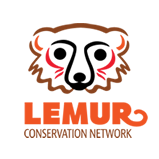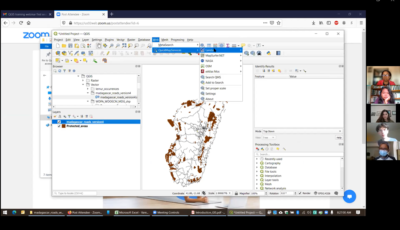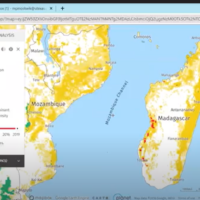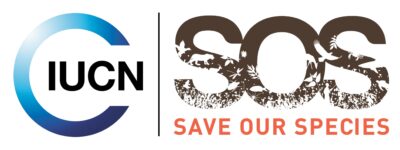Conservation Technology Webinar Series
Covid-19 regulations limited our abilities to provide in-person training, so the Lemur Conservation Network held a series of conservation technology webinars for the Malagasy conservation community from April to August 2020. This webinar series provided technical guidance and practical advice on conservation technology tools that can be used to enhance the conservation work at our members’ project sites.
The webinars were led by Dr. Matthew Moskwik who has over 20 years of experience working in conservation biology and using statistical models to understand and quantify the impacts of landscape and climate change on threatened and endangered species. Fascinated by Madagascar’s unique flora and fauna, he previously traveled to Madagascar, and now wanted to support local conservation work. Dr. Moskwik generously donated his time and efforts to the project. He was accompanied by Dr. Seheno Andriatsaralaza and Misa Rasolozaka, who translated the webinar into Malagasy, and answered questions from the Malagasy audience.
QGIS, SMART, and Global Forest Watch
The first webinar was on QGIS, a technological field that incorporates geographical features with tabular data in order to map, analyze, and assess real-world problems. The second webinar was on SMART, which combines field-based data collection with analytical mapping and summary tools, so patrol efforts can be more efficient and successful at reducing poaching or other illegal activities within protected areas. Finally, the third webinar on Global Forest Watch which provides data and tools for monitoring forests in near real-time, allowing anyone to view where and how forests are changing around the world. All of the training included a second session to answer questions and further clarify aspects of these technologies.
Learn more about their work and other amazing projects they support.
Looking Forward
We have received positive feedback on the conservation technology series, which illustrates the need to provide more technical and capacity training on tools that can enhance conservation outcomes. Additionally, online tools such as Zoom helped us extend our technology support to more members and stakeholders.
Covid-19 limitations made us rethink how to continue our capacity building and development outreach to the Malagasy conservation community, but it gave us an opportunity to extend our training and our impact. Initially, we expected to offer communication training just for 6-8 people, a representative of every member we are currently working with on this SOS project. However, the Covid-19 limitations and new online opportunities gave us the opportunity to do a series of webinar training sessions to more than 20 people.
We hope to continue our conservation technology webinar series for Malagasy audiences, and extend it to other essential and effective tools and resources that could help our members enhance their conservation work. This couldn’t have been possible without the support from the IUCN Save Our Species, Dr. Moskwick, LCN staff, and volunteers.
Funded by IUCN Save Our Species
This project is funded by IUCN Save Our Species. The contents of this blogpost are the sole responsibility of the Lemur Conservation Network and do not necessarily reflect the views of IUCN.




